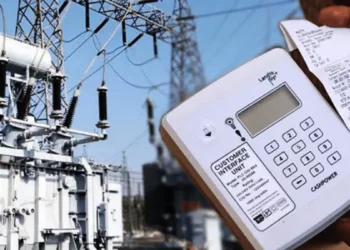Analysts have described the 15 per cent inflation and N1,500 to the dollar exchange rate as projected in the 2025 budget that was presented by President Bola Ahmed Tinubu as overly ambitious.
The federal government in the proposed budget of N49.7 trillion for 2025 fiscal year present to the National Assembly last week had projected that inflation which is currently over 34 per cent will decline to 15 per cent as it takes measure to ease the difficulty that many Nigerians are faced with.
According to the presidency, inflation is projected to decline in 2025 as enhanced security measures in 2024 are expected to lead to a bumper harvest, driving down food prices and reducing reliance on food imports. This is expected to ease inflationary pressures, particularly in the food segment, which significantly influences the overall inflation rate.
Asides this, the commencement of domestic production of refined petroleum products is also expected to reduce the demand for foreign exchange to import fuel, in addition to a projected increase in oil output and substantial reductions in upstream production costs, that is expected to enhance revenue generation and improve Nigeria’s forex reserves. The government projects a base crude oil production assumption of 2.06 million barrels per day (mbpd).
Commenting on the projected decline in inflation, analysts noted that, with the root cause of rising inflation yet to be addressed, inflation is expected to continue to rise into next year. Inflation currently is at 34.6 per cent as at November while value of the naira ha s remained at between N1,650 and N1,700 to the dollar.
According to the managing director/CEO of Cowry Assets Management, Johnson Chukwu, the inflation expectation in the 2025 budget is quite optimistic “because the factors that are driving inflation have not been addressed and they are principally issues around the exchange rate pass through effect and food inflation.
“We need to hear the government give us concrete plan on how they want address issue of food production in the country which have been affected by insecurity. Recall that the that the food inflation in November was as high as 39.93 per cent a steady increase over the 38.7 per cent in October.
“Those factors are still there. If we don’t address the issue of food production and exchange rate pass through then the expectation of 15 per cent inflation will be optimistic. Similarly the Head, Financial Institutions Ratings at Agusto & Co, Ayokunle Olubunmi, noted that the inflation expectation of the government is overly optimistic considering that the base effects have not been addresed.”
He further said, “Looking at the budget presented, the budget itself is inflationary. The amount that the government wants to spend will intensify the inflationary pressure. Also looking at the financial sector, the banks are recapitalising and they want to increase the funds coming into the economy.’’





